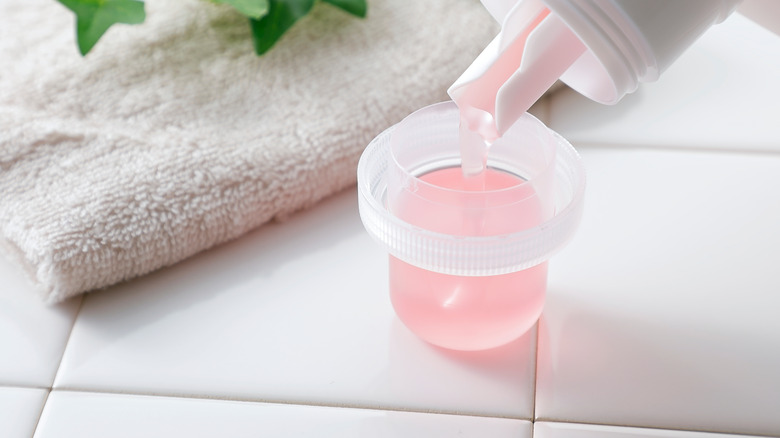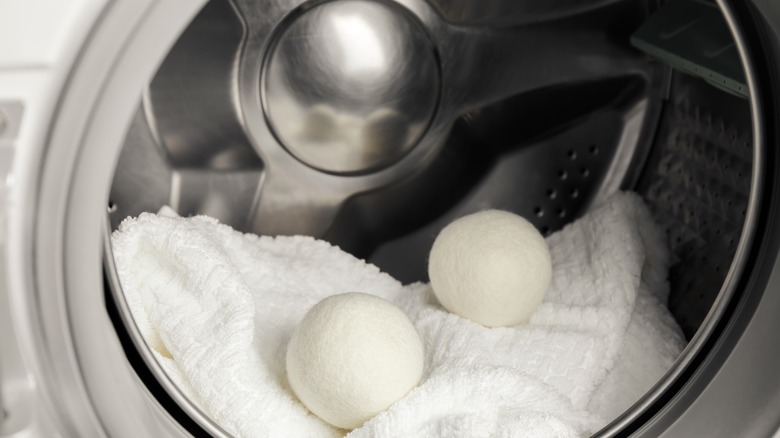The Negative Way Fabric Softener Affects Your Towels And Linens
There are numerous laundry myths and urban legends floating around the internet, but some of them are actually worth paying attention to despite how strange they sound. For decades, fabric softeners have been a staple of laundry rooms around the globe, but it turns out this popular product might be more detrimental than beneficial. That's because fabric softeners can create a barrier on fabrics, causing build-up and keeping water, as well as soap, from penetrating into fibers to get them clean. This unnecessary layer prevents your items from getting the scrub they need.
Fabric softeners work by covering fabrics with chemicals that encourage softer, fluffier textures. These chemicals are electrically charged, which is also why there is less static cling when you remove a load from the dryer. While these seem like useful results, the build-up that comes from using softeners over time isn't good for your towels and linens, or your hygiene.
The coating prevents proper cleaning
In a TikTok posted by CTV Your Morning, you can see the difference between a towel that hasn't been treated with fabric softener and one that has. The first towel allows water to absorb into the fibers, pulling in the moisture that helps remove dirt, grime, and other detritus in the wash. When water is applied to the second towel, it beads off the surface, almost as if the towel is waterproof. While the fabric had been treated multiple times with fabric softener, the effect is startling: The show host has to physically pat down the water droplets to get the material to absorb it.
Once clothing or linens have developed a coating from softeners, they won't pull in moisture or detergent during a wash cycle, meaning nothing is really being cleaned or rinsed. If you consider the pieces you're trying to clean when doing laundry, the last thing anyone wants is for fabrics that see a lot of sweat or grime to repel the products meant to sanitize them. It appears that fabric softeners are the equivalent of turning a pair of underwear inside out and calling them clean (maybe not that bad, but the results aren't great).
Useful alternatives to keep fabrics soft and fresh
All is not lost regarding fresh-smelling, soft clothes and towels, though! Just because fabric softeners use harsh chemicals that keep helpful elements out, doesn't mean you have to give up on buttery fabrics that look and feel good to the touch. One of the simplest ways to keep materials smelling good is to start off your load with a scented soap or detergent. Some of the aromas might fade during the rinse and spin cycles, but there will still be leftover fragrance once the load has finished that you can work with. Standard pantry items like vinegar and baking soda can also help soften clothing naturally, and you just have to add it into the machine during the rinse cycle, or into the fabric softener dispenser (this last option is for vinegar only).
From there, throw your dryer-safe items into the dryer and add wool dryer balls to help with static and overall freshness. To really amp up the scent factor, you can use any essential oils you have, adding several drops to the dryer balls to create DIY scent boosters. According to Branch Basics, the ideal number is between 5-10 drops, and this will leave clothing, linens, and other fabrics smelling good without the need for harsh chemical compounds. So, ditch the fabric softeners and get ready for cleaner laundry every time you wash!

